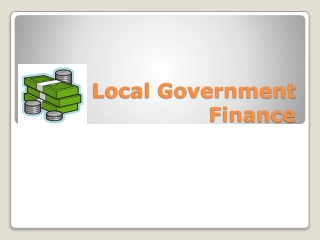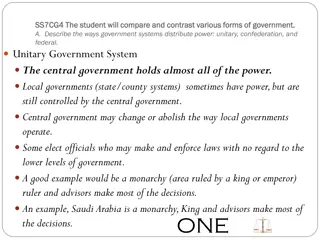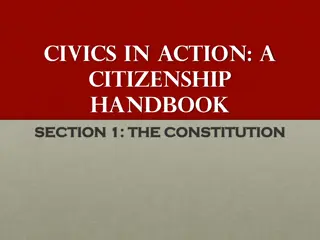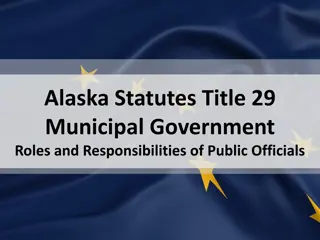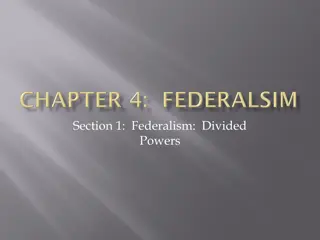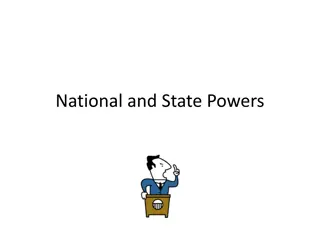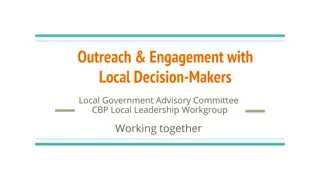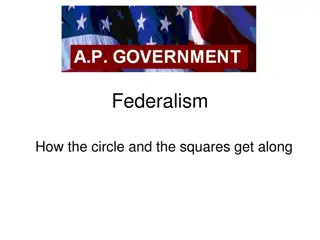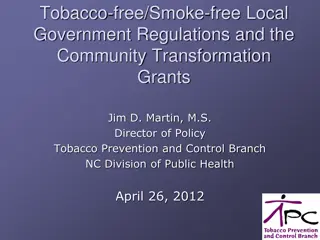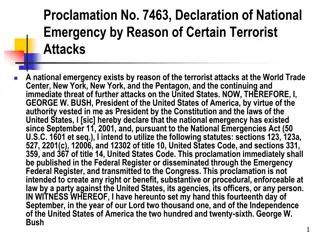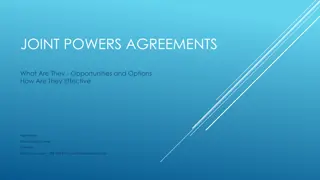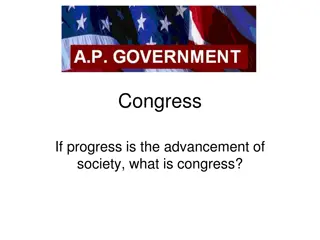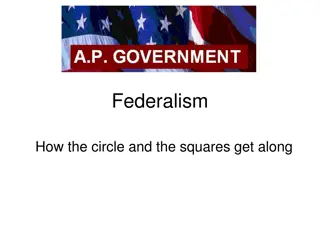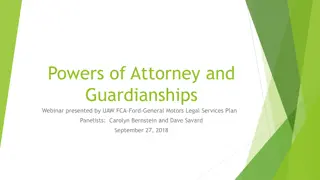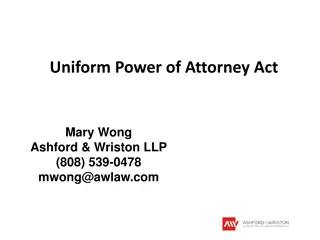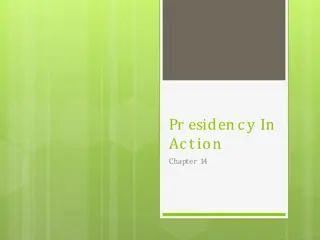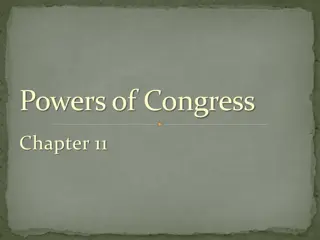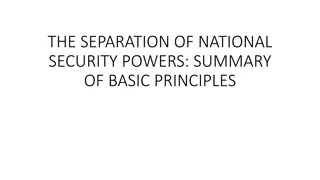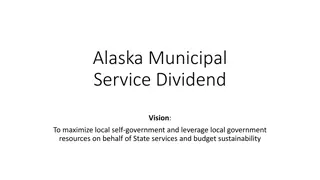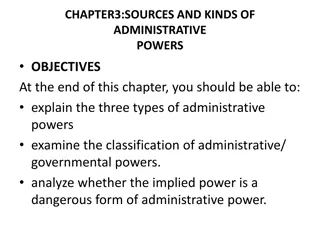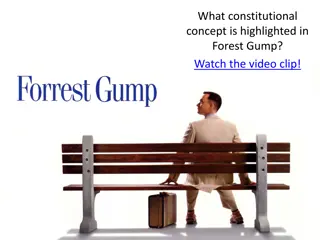Understanding Local Government: Powers, Responsibilities, and Organization
Local governments are established by state governments and provided powers through charters. They deliver essential services like road maintenance, water supply, and waste collection. Municipalities have self-government to serve their citizens. Ordinances, statutes, and acts regulate local laws and law enforcement ensures compliance. Explore the process of lawmaking at the local, state, and federal levels, as well as the organization and functions of county governments.
Download Presentation

Please find below an Image/Link to download the presentation.
The content on the website is provided AS IS for your information and personal use only. It may not be sold, licensed, or shared on other websites without obtaining consent from the author. Download presentation by click this link. If you encounter any issues during the download, it is possible that the publisher has removed the file from their server.
E N D
Presentation Transcript
Local Governments 14.1 & 14.2 Local governments are established by and given powers from the state governments. Their powers, responsibilities, and organization are defined by a charter from the state. A charter is a legal written document that establishes the organization of a local government (town, city, etc.) Local governments provide local services such as: maintaining roads, providing running water, monitoring sewage systems, constructing sidewalks, street cleaning, and providing trash collection.
Local Governments 14.1 & 14.2 Local governments can also supervise privately or publically owned electric and transportation systems. (City of Tallahassee Utilities; StarMetro Bus) Municipalities (also called towns, townships, villages, cities) are units of local government that are incorporated by the state and have self-government. The main job for municipalities is to provide services for its citizens.
Local and County Governments It is the job of local governments to make communities better places to live. They work to do this by passing ordinances. Ordinances are laws (regulations) that govern a local community. They cannot conflict with state laws (statutes) or federal laws (acts). What prevents local laws from overriding state/federal laws? Local law enforcement groups are in charge of enforcing both ordinances and state laws.
Ordinances, Statutes, and Acts Statutes are laws passed by a state legislative body. They are NOT passed by cities or municipalities. Acts are passed at the federal level and are federal laws. These laws will be enforced by federal agencies NOT city or state agencies.
Lawmaking Process Local State Federal Ordinances are made by councils and commissions. Statutes are made by state legislatures. Acts are made by our federal legislature, called Congress. Each county, city or municipality handles lawmaking differently.
Organization and Purpose of County Government A county is a division of state government formed to carry out state laws. There are 67 counties in Florida and each county creates its own county government. In Leon County, the county board/commission is elected by voters and forms the legislative body. The county board or commission supervises elections; enforces state and county laws; collects taxes; and provides health and welfare services, libraries, roads, and schools. NEXT
The Leon County Commission The citizens of Leon County vote for the commissioner of their district (there are five districts) and for two At-Large seats. At-Large means that these officials represent the whole county. There are seven commissioners in total and they vote on issues and new ordinances brought up at Commission meetings. NEXT
SECTION 1 Section 1: Units of Local Government LEON COUNTY GOVERNMENT NEXT
Leon County Commissioners District 1 Bill Proctor District 3 John Dailey District 4 Bryan Desloge District 5 Kristin Dozier At- Large Nick Maddox Distrit 2 Jimbo Jackson At-Large Mary Ann Lindley NEXT
Organization and Purpose of County Government County officials can include a Sheriff and Sheriff Deputies, county clerk, treasurer, auditor, district attorney, tax collector, and supervisor of elections. Sheriff Walt McNeil Doris Maloy Leon County Tax Collector
Types of Municipalities There are many different types of municipalities (local governments) that exist across America. Villages are the smallest form of municipal government in Florida and can be created when populations grow and need to organize. Towns originated in the New England area and many towns there still practice direct democracy; towns generally have larger populations than villages and require more local services. Cities are the largest kind of municipalities. The state government grants home rule which allows cities to be created by charters that are approved by the voters. NEXT
How Are Cities Formed? Cities are created when populations grow and need to organize to better care for the people. Cities are self-governing municipalities which means they choose their leaders, pass ordinances, etc. City governments collect taxes and provide local services The city of Tallahassee is governed by a City Commission (legislative body) with an executive called, Mayor. NEXT
The City of Tallahassee FSU Airport Southwood NEXT
Tallahassee Government Mayor: Andrew Gillum Roles of the Mayor: Presides at meetings Head of the City/(also our ceremonial leader) Enforces city ordinances He has only one vote along with the Commission he has no veto power NEXT
Tallahassee Government City Commission Curtis Richardson Gil Ziffer Nancy Miller Scott Maddox The City Commission meets regularly to discuss issues and work, vote on new policies, and work on planning for the city.
Tallahassee Government The city also can have several other officials who are appointed to keep the city running. City Manager City Auditor City Attorney Treasurer-Clerk Police Chief Fire Chief City Manager Ricardo Fernandez Chief of Police Michael DeLeo NEXT


